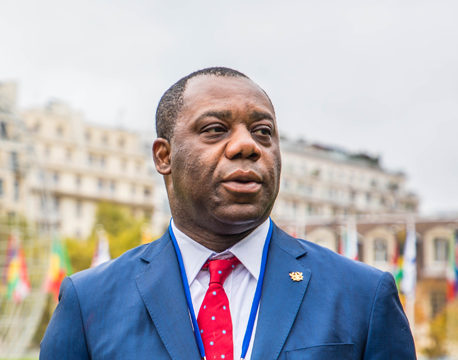
Review, stabilise language policy in educational institutions
The International Mother Language Day is observed throughout the world on February 21.
It was instituted by the United Nations Educational, Scientific and Cultural Organisation (UNESCO) in 1999 to promote linguistic and cultural diversity, multilingualism and to highlight greater awareness of the importance of mother language education.
The institution of the day was also to bring to the fore strategies nations could adopt to save their various indigenous languages and tap their immense benefits to the fullest.
In Ghana, the celebration of the International Mother Language Day has not been given the due attention it deserves, apparently due to a lack of government commitment, coupled with poor attitudes towards mother languages.
State enjoined
Even though Article 39 clause 3 of the 1992 Constitution enjoins the State to “foster the development of Ghanaian languages and pride in Ghanaian culture”, one wonders if the State is really performing her responsibility as far as this constitutional requirement is concerned.
There is little or no commitment on the part of government to come out with comprehensive policies and programmes to promote our indigenous languages, resulting in some Ghanaian languages going into extinction.
Since Ghana attained independence in 1957, there has been a growing concern about the relevance of the language policies incorporated into our educational structure.
This has resulted in frequent policy shifts which have not produced desired outcomes as far as Ghanaian language education is concerned.
There is still a growing concern about whether the current language policy is a kind that can help promote our indigenous languages for national development.
It is worthy to note that because the current language policy mandates the study of Ghanaian language to a limited extent, it has succeeded in alienating the Ghanaian from his or her roots and the inherent structures that homogenously weld them to their kith and kin, as authenticated by culture.
Again, the policy has denied the Ghanaian access to learn most of the cherished ideas and ideals of our tangible and intangible cultural heritage.
Colonial era
It is abundantly clear from the country’s language policies from the colonial era to date that there have been frequent policy shifts as the nation has oscillated between pro-English policies and those that mandate the use of Ghanaian languages in education to a limited extent, culminating in fluctuations in the implementation of the language policies.
Currently, the Ghanaian Language Policy states that Ghanaian languages should be used as a medium of instruction from kindergarten to primary three and English as a medium of instruction thereafter.
The junior high school students are learning one Ghanaian language and the teacher trainees are also made to study one under the policy. This has created a vacuum in the senior high schools and it is making the study of Ghanaian languages difficult for most of the teacher trainees, who do not study Ghanaian languages in the senior high schools.
To make matters worse, most of these teachers end up teaching the subject in our basic schools. How can these teachers be adequately equipped to ensure the success of the policy? Needless to say, the current language policy is in need of review.
Department
The Bureau of Ghana Languages is a government department mandated to write and publish books exclusively in Ghanaian languages as a way of promoting our local languages. However, BGL is unable to deliver effectively because of understaffing, insufficient funds and logistics.
Since its establishment in 1951, the BGL has been operating in the eleven Ghanaian languages so far studied in our educational institutions, namely, Akuapem Twi,
Asante Twi, Dagaare, Dagbani, Dangme, Ewe, Ga, Gonja, Kasem, Mfantse and Nzema. However, the once buoyant department engaged in the development and promotion of Ghanaian languages is now a pale shadow of its former self.
The theme for this year’s International Mother Language Day: “Languages beyond borders,” would not have come at a better time. While the mother language serves as pre-existing knowledge upon which inferences can be made to facilitate the transfer to a second language, we can still see “don’t speak vernacular” or “speak English only” on the premises of some of our educational institutions.
Meanwhile, the perception that a child’s fluency in the English language is an indication of his or her intelligence is unfortunately misplaced. In view of that the government should take the necessary steps to protect language diversity and promote our indigenous languages for sustainable development.
Let us take the necessary steps to promote Ghanaian languages for national development. The call goes to the government and other stakeholders to review the current language policy and make it stable.
Ghanaian languages should be made compulsory subjects in the senior high schools through to the universities. This will undoubtedly promote our indigenous languages for sustainable development. Let us give prominence to our mother languages as we have given to some foreign languages such as English, French etc.
The government should also resource the BGL to deliver on its mandate. The Ministry of Education, Ghana Education Service, policymakers, traditional rulers and other stakeholders should rise up to the challenge and save our mother languages from extinction.
The writer is with the Bureau of Ghana Languages,
E-mail:
